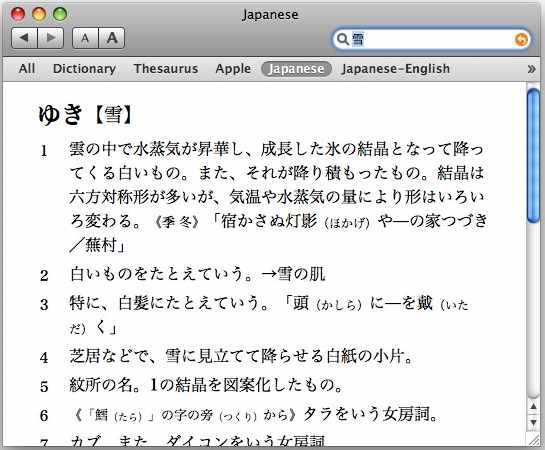The coolest thing I have is, of course, my phone. I'm gonna have to permanently set it to airplane mode since I won't get service over there (obviously), and anything that uses the internet is gonna be a wash (unless I'm connected to WiFi--I don't know how common that is over there though). Still, I have some really cool tools on my phone that, in my opinion, makes it almost as good as a fancy-pants 電子辞書.
 |
| The IME for droid phones, Simeji |
I have a program called WWWJDic and it has a pretty okay J-E dictionary on it for quick look-ups, but where the program really shines is its ability to let you draw in unfamiliar characters and look them up for you based on stroke order and character shape. I'm sure this is going to be insanely invaluable when I'm out and about and need to look up a character I don't know. That's one thing that's pretty interesting about the Japanese writing system: there's no real way to "sound out" a word like you can in English. If you don't know a character, the only hints as to the pronunciation or the meaning are the little elements that make up the character, and even those can get pretty esoteric and obscure.
On top of that, I also have a program called DroidWing which is simply a program that displays dictionary files that are saved in EPWING format. The nice thing is that I already have two EPWING dictionaries from a while back: スーパー大辞林, a very good J-J dictionary, and 新和英大事典, a well-respected J-E dictionary. They're older editions, but perfectly fine for what I'm going to be doing.
 |
| The dictionary program that comes with MacOS |
What's also pretty cool about my laptop is that I installed a part of the OS that allows me to use the trackpad as a writing surface for character recognition. The only problem is that it's actually part of the Chinese IME, instead of the Japanese one. That means I can only look up characters that are shared between Japanese and Chinese. Luckily that's still a lot, but I kinda wish there was one specifically for Japanese. Maybe in the future.
I also have a bunch of books, though I'm not sure of how many I'm actually going to bring over there. I have the first volume of Genki, which I completed my freshman year of college at Cincinnati. I also have the second volume which I sorta worked through myself. I don't think I'm gonna bring those books because I have limited space and they cover stuff that's pretty basic. However, I also have An Integrated Approach to Intermediate Japanese, also from the Japan Times, and I think I'm gonna bring it. It covers a bunch of stuff I'm still pretty shaky on, and has a lot of exercises that I can use to supplement my coursework. As if the coursework isn't gonna be enough.
I feel like I need to mention this, in case anyone reading this is in the process of learning Japanese: Tae Kim's Japanese Guide is honestly one of the best Japanese-learning resources I've ever seen. I keep a hard copy on my laptop and on my phone for quick reference. Particularly, his grammar reference is absolutely spectacular and comes with tons of examples.
I also have a number of intermediate novels and articles I've accumulated over the years, most of which are above my level right now. Still, I'm probably gonna end up bringing them with me. Why not? What's a couple extra pounds in my suitcases? At the very least, they'll give me something to struggle through on the plane.
No comments:
Post a Comment